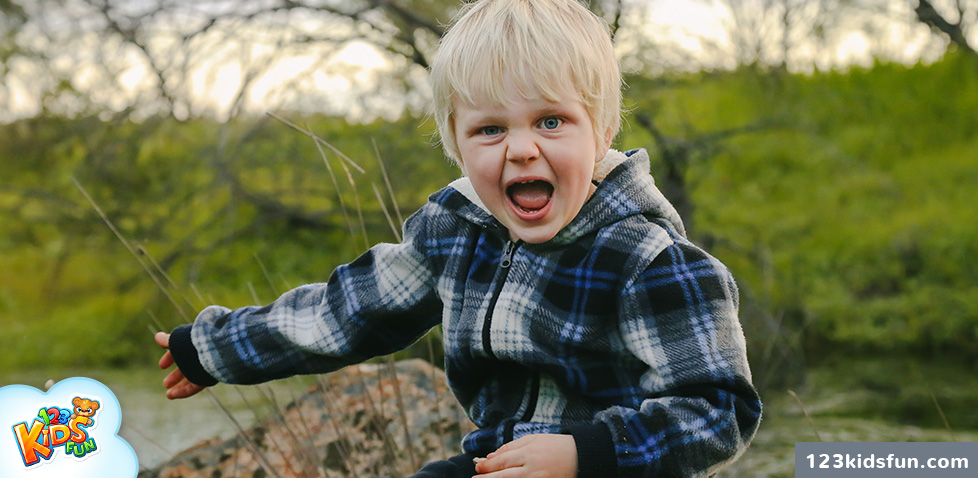
Understanding Your Child’s Development and the Terrible Twos: How to Support It
Parents around the world – in the U.S., Poland, and everywhere else – share a familiar story: the Terrible Twos, when a two-year-old says “no” to everything, a three-year-old throws themselves on the floor, and daily routines suddenly turn into battles of will.
In the U.S. this stage is often called the “terrible twos.” In Poland, parents talk about the “bunt dwulatka” (the rebellion of a two-year-old). But modern child development experts agree: it’s not rebellion, it’s a normal and healthy stage of growth.
Why Do Toddlers Say “No”?
Around age two, children discover that they are independent beings. They realize they can make choices, express opinions, and have influence over their world. Saying “no” is not about defiance—it’s about testing independence and autonomy.
For parents, this may feel frustrating. For the child, it is an important step toward building their own identity.
The Terrible Twos: It’s Not a Problem to Fix
Young children are not trying to upset their parents. They simply don’t yet have the tools to regulate their emotions. Instead of calm words, they have shouting. Instead of reasoning, they have stomping feet.
Your role as a parent is not to “break the rebellion,” but to guide your child through this emotional learning process with patience and empathy.
Why Labels Can Hurt
Calling a toddler “bad,” “difficult,” or “rebellious” may seem harmless in the moment, but labels stick. Children quickly begin to see themselves through their parents’ eyes.
Kids who constantly hear that they are “troublemakers” often struggle with self-esteem later in life. On the other hand, when parents acknowledge emotions without judgment, children learn that their feelings are valid—and that they can manage them in healthy ways.
All Feelings Are Okay
Every person experiences anger, frustration, sadness, and joy. Adults express these feelings differently, but toddlers are still learning. A tantrum is not misbehavior—it’s communication.
Instead of punishing emotions, parents can validate them. For example:
“I see you’re upset we didn’t buy the toy. I understand you’re angry. We’re not getting it today, but I hear how you feel.”
This simple response shows: your emotions matter, but there are also boundaries.
How Parents Can Support Their Child
- Stay calm. Remember, it’s a developmental stage, not a personal attack.
- Offer choices. Instead of “Put on your clothes,” try “Do you want the red shirt or the blue one?”
- Set clear boundaries. Predictability helps children feel secure.
- Accept emotions, not all behaviors. Anger is okay; hitting is not.
- Use closeness instead of yelling. A hug often calms faster than a lecture.
A Message for Parents
This stage is not only a school for your child—it’s also a school for you. Nobody is born knowing exactly how to parent. We all learn step by step, sometimes through mistakes, sometimes by trying again.
You don’t need to feel guilty if you don’t always react perfectly. There are no perfect parents. What matters most is that you want to listen and try to understand your child. That alone is a huge step.
Children don’t need flawless adults. They need adults who are present, authentic, and willing to grow alongside them.
Helpful Books for Parents on the Terrible Twos
If you’d like to dive deeper, here are some highly recommended books by child development experts:
- “The Whole-Brain Child” – Daniel J. Siegel & Tina Payne Bryson
- “No-Drama Discipline” – Daniel J. Siegel & Tina Payne Bryson
- “How to Talk So Little Kids Will Listen” – Joanna Faber & Julie King
- “Good Inside” – Dr. Becky Kennedy
- “Raising Your Spirited Child” – Mary Sheedy Kurcinka
These resources provide practical strategies, reassurance, and new perspectives on parenting toddlers.
Final Thoughts
The so-called “terrible twos” are not terrible at all—they’re the beginning of independence. A toddler who says “no,” stomps their feet, or cries in the store is not misbehaving. They are simply learning that they are their own person with their own feelings and choices.
As parents, we can see this as a battle… or as a chance to nurture empathy, resilience, and confidence.
Because children don’t act out “to get us.” They act out because they are growing. And when they grow—we grow with them.
123 Kids Fun Team – parents, educators, and creators of playful learning tools. We’re fascinated by psychology and neurodidactics, and we love helping kids grow with confidence.








